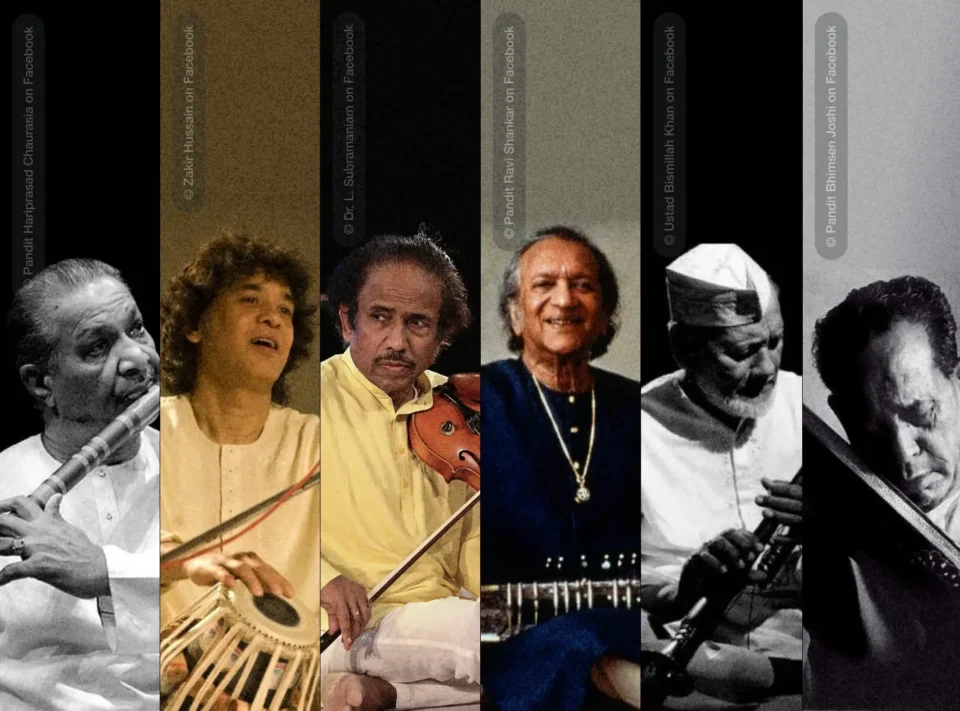Carnatic music is one of the most soulful and intricate forms of Indian classical music. It is a tradition built on devotion, discipline, and technical mastery. Over the years, many legendary singers have shaped and enriched this art form, inspiring generations of musicians.
Let’s take a closer look at the lives and musical journeys of 10 iconic Carnatic singers and how they continue to motivate today’s artists.
- M. S. Subbulakshmi (1916–2004)
- S. Subbulakshmi’s journey from a small town in Tamil Nadu to becoming the “Queen of Carnatic Music” is extraordinary. She began training at a young age under her mother and later under renowned gurus. Her voice was a blend of technical perfection and divine emotion. When she sang, it felt like a prayer, touching the hearts of all who listened.
Her performance at the United Nations in 1966 made her an international icon. She received countless awards, including the Bharat Ratna, India’s highest civilian honor. Subbulakshmi’s humility, devotion, and unwavering commitment to music inspire singers today to strive for excellence while staying rooted in simplicity.
- Dr. Balamuralikrishna (1930–2016)
Dr. Balamuralikrishna was a child prodigy who gave his first concert at the age of 8. He was a pioneer who created new ragas like Mahati, Lavangi, and Ganapriya. His voice was dynamic and flexible, capable of effortlessly transitioning between complex swaras and gamakas.
Beyond his vocal abilities and interest in Carnatic music instruments, he was also a master of several instruments, including the viola and mridangam. His innovative spirit teaches modern singers to embrace creativity and explore the vast possibilities within Carnatic music. His music encourages today’s artists to blend tradition with innovation without losing the essence of the art form.
- Ariyakudi Ramanuja Iyengar (1890–1967)
Ariyakudi Ramanuja Iyengar revolutionized the Carnatic music concert format. He introduced the structured kutcheri format, balancing kritis, alapana, and improvisation in a way that kept the audience engaged.
Iyengar’s disciplined approach to music, combined with his mastery of ragas like Kambhoji and Shankarabharanam, made him a revered figure in the Carnatic world. He inspires today’s musicians to present their music thoughtfully, keeping both tradition and audience connection in mind.
- Semmangudi Srinivasa Iyer (1908–2003)
Semmangudi Srinivasa Iyer is fondly remembered as the “Grand Old Man of Carnatic Music.” His journey began under the tutelage of legendary musicians, and his career spanned over seven decades. Known for his deep and soulful renditions, his performances were a perfect mix of technical rigor and emotional depth.
Semmangudi also mentored several leading Carnatic musicians of the next generation. His dedication to passing on knowledge motivates today’s singers to prioritize teaching and nurturing the next wave of talent.
- G. N. Balasubramaniam (1910–1965)
- N. Balasubramaniam, known as GNB, transformed Carnatic music with his innovative singing style. He was known for his speed, precision, and technical brilliance. GNB’s mastery of improvisation and his flair for experimenting with kritis captivated audiences.
As a trailblazer, GNB showed that Carnatic music could evolve while remaining deeply rooted in tradition. His journey inspires today’s singers to find their unique style while honoring the art form’s heritage.
- T. M. Krishna (1976–Present)
- M. Krishna is a contemporary Carnatic vocalist known for challenging conventions. Born into a family with a love for music, Krishna trained rigorously under Seetharama Sharma. Over the years, he developed a distinctive style that emphasizes emotional depth and intellectual engagement.
Krishna has taken Carnatic music beyond traditional concert halls, performing in villages, beaches, and public spaces. He also advocates for social change through his music, making him a role model for modern artists who seek to make a difference while pursuing their art.
- D. K. Pattammal (1919–2009)
- K. Pattammal was a pioneer who broke gender barriers in Carnatic music. In an era when women were not encouraged to perform publicly, Pattammal’s determination and talent earned her a place among the greats. She trained under Ambi Dikshitar and others, mastering complex compositions and Ragam Tanam Pallavi.
Her story inspires today’s musicians to overcome challenges and remain steadfast in their passion for music. Pattammal’s commitment to perfection continues to motivate singers to approach their craft with discipline and focus.
- K. J. Yesudas (1940–Present)
- J. Yesudas, often called the “Celestial Singer,” has a voice that effortlessly bridges the spiritual and the musical. Trained in Carnatic music from a young age, he combines a deep understanding of classical techniques with an emotional resonance that appeals to a wide audience.
Yesudas’s journey from a modest background to global recognition is an inspiration. His dedication to practicing and evolving as an artist teaches modern singers the importance of constant learning and humility.
- Ranjani-Gayatri (1973 & 1976–Present)
Ranjani and Gayatri, the sister duo, have become household names in Carnatic music. They began their musical journey as violinists before transitioning to vocal performances. Their training under stalwarts like P. S. Narayanaswamy and T. S. Krishnaswamy has shaped their intricate and emotive singing style.
Their ability to deliver synchronized performances with rich improvisation inspires young artists to explore collaborative artistry. They remind musicians of the beauty of harmony, both musically and personally.
- M. L. Vasanthakumari (1928–1990)
- L. Vasanthakumari, or MLV, was a student of G. N. Balasubramaniam. Known for her creative renditions and effortless singing, she popularized numerous kritis through her recordings. Her approachable style made Carnatic music more accessible to the masses.
MLV’s journey teaches modern singers to connect with their audience and make classical music relatable. Her versatility and openness to experiment encourage musicians to broaden their horizons while staying true to their roots.
Conclusion – How These Legends Motivate Modern Musicians
These legendary singers were not just artists; they were torchbearers of tradition, innovation, and dedication. Their journeys teach us:
- Discipline and Hard Work: Excellence in Carnatic music requires relentless practice and devotion.
- Balancing Tradition and Innovation: While preserving ancient techniques, they explored new ways to present music.
- Overcoming Barriers: Many broke societal norms, inspiring others to follow their dreams despite challenges.
- Teaching and Passing on Knowledge: Most of these icons mentored others, ensuring the art form thrives across generations.
For today’s singers, their lives are a treasure trove of lessons, showing how passion, perseverance, and respect for tradition can lead to greatness. Listening to their music and learning from their stories can ignite a deep appreciation for Carnatic music and inspire a lifelong journey in this art form.
Are you motivated to follow in their footsteps? Then explore opportunities to join online Carnatic music classes.

